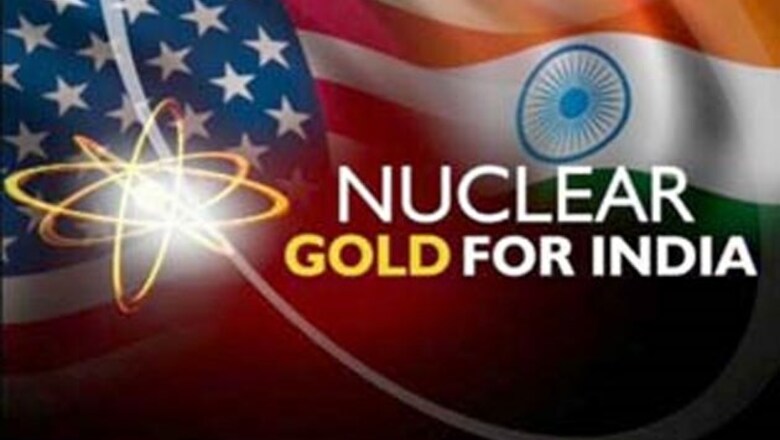
views
Washington: American companies are unlikely to engage in nuclear trade with India till it becomes a signatory to an international convention on nuclear damage that among its provisions puts the onus of compensation on the state in case of an accident, a Congressional report has said.
"US firms will likely be very reluctant to engage in nuclear trade with India if the government does not adhere to the Convention on Supplementary Compensation for Nuclear Damage (CSC), which has not yet entered into force," said the independent Congressional Research Service (CRS) in its latest report to the Congress on the implementation of the civilian nuclear deal.
CRS is the bipartisan research wing of the US Congress which prepares periodic reports on various issues for American lawmakers. The report was sent to lawmakers on September 28.
National Security Advisor Shivshankar Menon, who was in Washington last week had announced that India will sign the CSC.
The convention, among its provisions, puts the onus of compensation in case of nuclear damage on the 'installation state'.
It also holds the operator of a nuclear installation liable for damage if adequately proven, a provision which critics say 'shields' suppliers.
It also defines additional amounts to be provided through contributions by convention members if the affected member state cannot take care of the damages.
Until now, only 13 states have signed the CSC, and only 4, including the US, have ratified it.
The CRS in its report also informed Congressmen that US companies have not yet started nuclear trade with India.
The report said that India had insisted that the US conclude an agreement with it on a reprocessing facility in India before signing contracts with US nuclear firms.
The two countries announced March 29 that they had concluded the agreement. "The US Administration submitted the subsequent arrangement to Congress May 11. The proposed arrangement shall not take effect if Congress adopts a joint resolution of disapproval," the report said.
The CRS report said the Administration has characterised civil nuclear cooperation with India as a "win" for non-proliferation because it would bring the country into the "non-proliferation mainstream".
In short, the Administration is proposing that India should be courted as an ally in US non-proliferation policy, rather than continue as a target of US non-proliferation policy.
The US administration wants India to become an ally as past policies have not worked and New Delhi has a relatively good non-proliferation record.
At the same time, it said some observers, however, are concerned that India may not support US non-proliferation policies sufficiently to warrant nuclear cooperation, particularly where the US faces its greatest nuclear proliferation threat -- Iran.
At a House International Relations Committee hearing recently, several members of the Congress questioned whether the US had obtained assurances from India of its support on Iran before negotiating a nuclear treaty.
"Two factors may present challenges to Indian support for US policies toward Iran. First, India has a growing strategic relationship with Iran, not limited to its interest in a proposed $ 7.4 billion, 2800-km-long gas pipeline between Iran, Pakistan, and India.
"Second, India has a strong tradition of foreign policy independence, as a long-time leader of the Non-Aligned Movement (NAM) states and as a vigorous opponent of the discriminatory nature of the Nuclear Nonproliferation Treaty," the report said.



















Comments
0 comment